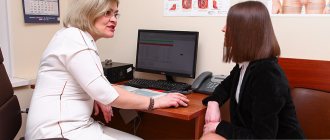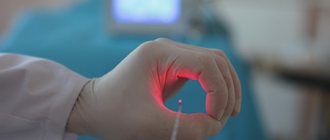Obsessive itching in the anal canal is a symptom that is rarely addressed to a doctor. It is considered inconvenient, sometimes indecent, and is often ignored. Meanwhile, itching near the anus or inside it does not occur for no reason. It may hide a serious intestinal or rectal disease, endocrine disorders and parasites.
To say goodbye to unbearable itching in an “inconvenient place” once and for all, you need to find out the reasons for its occurrence, and then select effective treatment methods.
What is anal itching - main signs and symptoms
It is very simple to distinguish pathological itching in the anal area from short-term irritation of the perianal area. Pathological is considered a symptom that occurs, if not constantly, then regularly. The majority of patients who sought medical help complaining of daily discomfort associated with certain situations:
- eating;
- eating certain foods;
- going to the toilet;
- body position;
- human activity.
Anal itching can occur for no apparent reason. However, it causes significant inconvenience and reduces the patient’s quality of life. An attack of severe itching can last from several minutes to several hours.
Pathological itching does not go away on its own, becomes longer and more intense, and in most cases is complicated by inflammation of the skin around the anus. In this case, itching and burning, tingling and swelling of the anal folds become a constant companion for the patient.
Additional symptoms that accompany itching in the anus indicate pathological processes:
- discharge of mucus from the anus;
- anal bleeding (traces of blood visible on stool and/or paper);
- sensation of a foreign object in the anus;
- intestinal disorders (diarrhea, flatulence, constipation);
- rashes in the perineum;
- acute pain during bowel movements;
- discharge from the genital tract.
All of these conditions require proper treatment. However, before you start, you need to find out what exactly caused the itching.
Without knowing the reasons why the anus itches and burns, it is impossible to select effective treatment methods. If you pay attention only to eliminating this symptom, the disease will progress.
Diagnostics
The doctor will direct a patient with a complaint of itching and burning in the anus to undergo the following examination:
• studying blood for glucose levels; • general analysis of urine and blood; • blood biochemistry; • examination of stool for worm eggs; • stool analysis for dysbacteriosis; • examination by a proctologist with an anoscope and colonoscopy; • visiting a dermatologist.
For women, you need to consult a gynecologist, and for men, it would be a good idea to visit a urologist.
A complete history of the disease will help the medical specialist find out the true cause of the itching. This trouble can be associated not only with medical problems.
Poor nutrition - a predominance of over-salted, highly spiced foods and alcohol in the diet - may well lead to itching in the anus.
Unfavorable external environmental conditions - increased background radiation, exposure to chemicals - is another reason for discomfort.
The patient's genetic predisposition to certain diseases (diabetes mellitus, dyspepsia, fungal infections, diseases of the endocrine system) is another unfavorable factor. Favorite animals that live near you can become a source of human infection with helminthic infestation.
After undergoing a full examination and talking with a doctor, a person can expect that the treatment chosen by a specialist will be correct and most effective.
Why there is itching in the anus - the main reasons
If you have complaints about anal itching, you can contact your doctor. After an initial examination, he will refer the patient to a specialist - a proctologist, gastroenterologist, infectious disease specialist, urologist or gynecologist. The patient may have to consult several specialists and undergo several tests.
At the initial stage of diagnosis, the doctor will consider specific symptoms, based on which it can be assumed that as a result of itching in the anal area. There are several dozen diseases with this symptom.
Pathologies of the rectum
The most common cause of itching in the anus in adults is diseases of the rectum. These include:
- external or internal hemorrhoids;
- chronic proctosigmoiditis;
- neoplasms in the rectum (polyps or cancerous tumors);
- neoplasms in the folds of the anus and around the anus (genital warts);
- anal fissures;
- anorectal fistulas.
If the itching around the anus is not accompanied by mucus and blood, and upon examination dry, flesh-colored formations are found, we are talking about genital warts.
Important! Benign neoplasms appear due to infection with the human papillomavirus (HPV). Under certain conditions, this infection provokes the formation of perianal condylomas and papillomas, which can then develop into anal canal cancer.
If, in addition to itching, the patient complains of pain in the rectum, discharge of blood and mucus, there is a high probability of proctological diseases - fissures, hemorrhoids, fistulas, etc. Unpleasant symptoms in such diseases worsen after defecation.
Pathologies of the genitourinary system
Itching around the anus can occur against the background of gynecological and urological diseases and infections of the genitourinary organs. The most common reasons for its appearance:
- candidiasis;
- chlamydia;
- trichomoniasis;
- gonorrhea and other STDs.
Sometimes it can be sexually transmitted herpes. You can recognize it by its watery bubbles (photo below).
There may be no signs other than itching in such pathologies. However, in most cases, they are indicated by discharge from the genital tract (green or purulent, in the form of foam or cottage cheese, mixed with blood, etc.), an unpleasant odor from the genitals, pain in the lower abdomen, rashes and weeping sores.
Important point! The mentioned diseases in 90% of cases are accompanied by enlarged lymph nodes in the groin. Sometimes this is the only sign, other than itching, that helps the doctor make the correct diagnosis.
Parasitic infections
The second most common cause of itching in the anus is infection with intestinal parasites - pinworms, roundworms, giardia. They are more likely to bother children and adolescents, causing severe discomfort after bowel movements and upon waking up. Additional signs by which helminthic infestations can be diagnosed:
- fatigue;
- drowsiness;
- allergic reactions (rash, runny nose);
- low-grade fever;
- nausea and/or vomiting;
- bloating;
- intestinal spasms and stool upset.
With ascariasis and enterobiasis, live or dead parasites are observed in the feces. Pinworms can be found near the anus on the skin or even on underwear. They especially often come out at night or in the morning.
Interesting fact! In 90% of cases, helminth infection occurs through contact with domestic animals and during play in outdoor sandboxes. This also occurs when there is contact with personal belongings of helminth carriers.
Intestinal diseases
Itching in the perianal area occurs with inflammatory and infectious bowel diseases, which are accompanied by prolonged diarrhea or constipation. Abnormal bowel movements provoke irritation of the mucous membrane of the rectum and anal folds, resulting in burning or itching.
Other reasons
In addition to the previously described diseases, severe itching in the anal area is also provoked by other pathological conditions:
- skin diseases - dermatitis, psoriasis, seborrheic eczema and lichen;
- allergic reactions;
- diaper rash;
- side effects when taking medications.
Some mental and nervous disorders also lead to severe itching, including an obsessive desire for cleanliness of the perineum, stress, and depression.
Regardless of what caused this unpleasant symptom, you should seek help from a doctor. Each of the described diseases does not disappear on its own, and over time leads to serious complications. Thus, as hemorrhoids progress, vascular thrombosis or rupture with heavy bleeding may occur, and anal fissures become easily infected and can develop into chronic paraproctitis.
The most dangerous itching is caused by rectal polyps. These seemingly harmless tumors often transform into cancer.
Primary causes
There are many reasons for pain and itching in the anus. There are primary (which signal intestinal pathology) and secondary, indirect (which are a consequence of other diseases and conditions). The most common are:
- all types of hemorrhoids;
- cracks;
- polyps;
- chronic form of proctosigmoiditis;
- dysbacteriosis;
- anorectal fistulas;
- parasites living in the intestines;
- urethritis;
- prostatitis;
- in women - gynecological diseases.
Each reason that can cause a burning sensation must be considered separately. If, despite the external calm of the anus, persistent itching is felt, most likely this is an exacerbation of hemorrhoids. At first, only itching and minor pain will indicate its presence. In the absence of treatment, hemorrhoids will begin to appear outside after some time, causing a lot of anxiety.
If the itching is caused by hemorrhoids, other symptoms may also occur. Firstly, there is bloody discharge. Blood appears from nodes, the integrity of which can be disrupted even due to difficulties during bowel movements. Secondly, there are difficulties with defecation. Nodes can become an obstacle to the normal movement of feces.
Treatment of anal itching
Methods for treating itching in the anus are selected by the doctor depending on the diseases detected. In most cases, therapeutic measures are aimed at eliminating them, since itching is a symptom. Predominantly drug therapy is used, and in some cases the use of radical measures is required - surgical or minimally invasive intervention.
Medicines
To eliminate the manifestations of anal itching, medications of different groups are used depending on the causes of the symptom:
- For hemorrhoids, anal fissures and other diseases of the rectum, local remedies are used - ointments or gels with anti-inflammatory and antipruritic effects.
- If the problem is of an allergic nature, antiallergic ointments with antihistamines will help cope with the obsessive symptom.
- Antibiotics in the form of tablets or injections are used for sexually transmitted infections and sexually transmitted diseases.
- Antifungal agents in the form of suppositories and tablets are used for candidiasis.
- Helminth infections and their symptoms are eliminated by taking special antiparasitic drugs. The drug is selected based on what type of worms were detected during the examination. It is recommended to take sorbents together with them to cleanse the body of toxins.
- If genital warts are detected on the anus, taking medications to strengthen the immune system and suppress the activity of the virus is indicated.
- If itching is caused by skin diseases, topical corticosteroids are prescribed.
To completely cure itching, additional remedies are prescribed: vitamin-mineral complexes, sedatives and stool stabilizing agents.
Important! You cannot select medications on your own and calculate the dosage and duration of therapy. This should be done by a highly specialized specialist after conducting a comprehensive examination of the patient.
Diet
Following a diet helps relieve itching around the anus. It is especially useful for proctological diseases and pathologies of the gastrointestinal tract, as well as for helminthiasis and dysbacteriosis.
First of all, you should exclude from the menu foods that irritate the intestinal mucosa and cause flatulence, diarrhea or constipation:
- dishes and foods high in fat, including oil sauces, lard, fried vegetables, fatty meats and fish;
- hot spices;
- marinades;
- salted vegetables, meat, fish;
- fruits, berries and greens with high acidity - citrus fruits, sorrel;
- chocolate and other cocoa products;
- some drinks - coffee, alcohol and black tea, soda and juices with flavors and sweeteners.
The basis of the diet is soups with vegetables and cereals in chicken or vegetable broth, stewed, boiled or baked vegetables, porridge in water or milk, steamed cutlets, stewed or baked meat (veal, chicken fillet, lamb), eggs (no more than 2 per day ), fresh fermented milk products.
Important point! For some diseases, you will have to stick to the diet for quite a long time - from several months to infinity. Any relaxation carries the risk of exacerbation of anal itching.
Folk remedies
The list of folk remedies that can theoretically be used for itching in the anus includes dozens of recipes, which can be divided into 2 groups:
- External - decoctions for baths with calendula, oak bark, chamomile and other herbs with a soothing, astringent and anti-inflammatory effect.
- For oral administration - decoctions and water infusions with oak bark, burdock roots or walnut leaves, linden blossom, yarrow and mint. Such teas and infusions eliminate intestinal disorders and normalize stool, which helps get rid of itching.
They should not be considered as independent medicines. Doctors recommend using them only as an addition to medication and diet therapy. Moreover, it is worth understanding that medicinal plants often cause allergies and can further aggravate unpleasant symptoms.
Important! It is strictly forbidden to treat itching in the anus in children with herbs and folk remedies.
other methods
If treatment with conservative methods does not improve the patient’s condition, the doctor decides on surgical or minimally invasive intervention. Such methods are used in the following cases:
- for hemorrhoids complicated by thrombosis of hemorrhoids;
- with heavy bleeding from the anus;
- when anal fissures become infected;
- with the formation of fistulas;
when large benign formations are detected in the rectum (polyps).
Both classical types of operations and low-traumatic procedures using cryodestruction, laser and radio wave “knives” and much more are used.
Since rectal diseases can be treated with these methods on an outpatient basis (many minimally invasive operations do not require hospitalization of the patient), they are becoming increasingly popular.
Itching in the anus should be treated with all available means, but only after consulting a doctor. For basic recommendations, see the video below.
Preventive actions
A set of preventive measures, which requires some changes in lifestyle, will help reduce the likelihood of itching in the anus. First of all, it is worth increasing physical activity to prevent pathological changes in the vessels of the rectum, and reviewing nutrition:
- include more vegetables and fruits containing fiber in the menu;
- prepare food by boiling, baking or steaming;
- replace fatty meats with dietary poultry fillet, fish, and veal.
Coffee, strong tea, carbonated and alcoholic drinks, hot spices and foods high in salt are taboos for those who do not want to deal with proctological diseases.
Another important condition for maintaining health is maintaining personal hygiene. The perianal area must be kept clean. It is better not to use toilet paper with scents, as well as scented soap. They can cause allergies and itching. Close attention should also be paid to hand hygiene to avoid helminth infection.
Particular attention should be paid to the current state of health. If even slight discomfort occurs in the rectum and anus, you should visit a doctor. This could be a therapist, gastroenterologist or proctologist.









